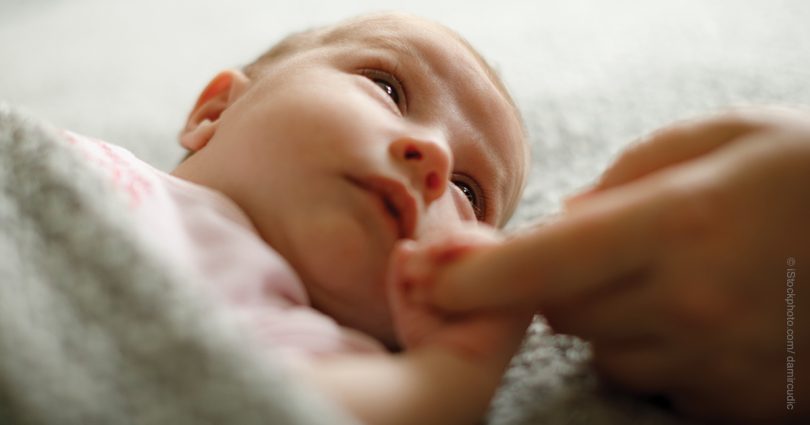Recently, I received a press inquiry from a journalist working on a piece about motherhood who wanted to speak to a mother raising “a child born of rape.” Her phrasing deeply troubled me because my child is so much more than that and should never be defined by how she was conceived. It was then that I realized how prevalent this language is, even among people who are pro-life. Yes, I became pregnant as a result of being raped. But you dishonor my motherhood and further stigmatize my daughter when you diminish her dignity by referring to her only as being “born of rape.”
Though I was disappointed and saddened, I decided to use this opportunity to teach others about the hurt they can cause when they use insensitive words or phrases such as “born of rape.” If you are a journalist (or anyone else) who finds yourself in this scenario, please choose your words carefully. Words have meaning. Words have consequences.
My beautiful baby girl was born in a hospital to me as her mother. For months, I longed to see her beautiful face. I eagerly anticipated holding her tiny body in my arms and kissing her cheek for the first of many times. Security at the hospital was excellent because of the repeated threats of retaliation from the rapist since I had reported him to police and prosecutors. But we were surrounded by wonderful doctors and medical staff who safely navigated us through an emergency C-section. In addition, we were surrounded by loving people who were overjoyed to see my baby and hold her when she was born.
It didn’t matter then, and it doesn’t matter now, how she was created. My daughter was born very much loved. Her birth was a beautiful thing—a moment I will always treasure. She was sleepy after her first bath and loved to curl her newborn hands around my fingers.
The use of the phrase “born of rape” is a cruel way to twist and distort the essence of my child and her life. No one deserves to be raped. My daughter was born of me, not of the rape I endured. She is a human being. She is my child. She is funny, smart, great at karate, loves being a big sister to her brothers, is loved and cherished by them, and, like most teenagers, complains about cleaning her room. Assigning her the label of being born of rape furthers a stigma that my daughter should not even be burdened with carrying, and it gives more power to my rapist.
Though I have tried to protect my daughter from the ugliness this term implies, she has come across it on the Internet and was very hurt and upset. When she first encountered the term, she cried. She felt angry at being labelled for something that was never her fault. I am angry, too. I wonder if this journalist, and the advocate who contacted me on her behalf, stopped to think about the humanity of the people they were hoping to write about.
As a people and as a culture, we must build a more compassionate and solutions-focused society to combat the stigma associated with women who have babies as a result of being raped. I hope and pray that society will progress further before my children become adults, when I cannot shield them as much. I will never stop fighting against vicious and insensitive rhetoric, and I will continue to love all my children through this. My children are watching and listening, and what they think of this will always matter to me. I will never be silent, and I will not disappear.
As a society, we can do better. We must do better—for the sake of my daughter and for all the other children out there not “born of rape,” but born of love.


Facebook Comments